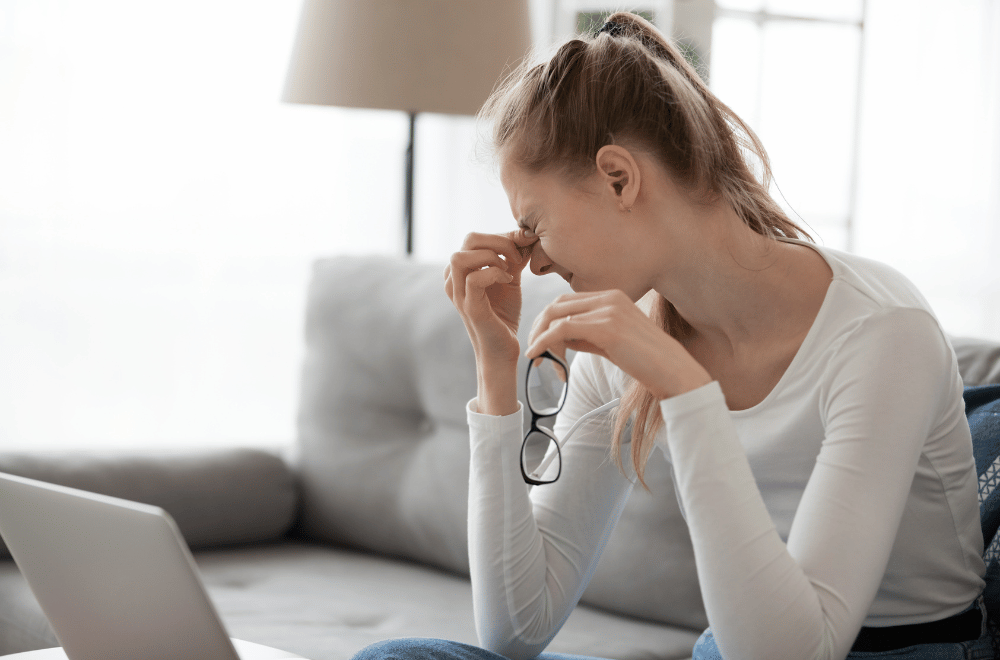If you’re constantly dealing with dry, itchy, irritated eyes, you could be suffering from dry eye syndrome. Dry eye syndrome happens when your eyes don’t make enough tears to stay moist or when your tears don’t work correctly. Your eyes may feel sore or gritty like there’s sand in your eyes. For many people, dry eye is more than a temporary nuisance. It can be a chronic condition that requires ongoing care and management of symptoms. Learn about the main causes and treatment options so you can find lasting relief:
Age
As we get older, our bodies produce fewer tears, leading to an increased risk of developing dry eye syndrome. It’s a common issue among people over 50. Hormonal changes in women during menopause can also contribute to dry eyes.
Medications
Certain medications, such as antihistamines, decongestants, and antidepressants, can reduce tear production and lead to dry eyes as a side effect. If you suspect that your medication may be causing your symptoms, ask your doctor about possible alternatives.
Poor blinking habits
People tend to blink less when focusing on screens or when reading a book. Blinking is important because it helps spread tears across the surface of your eyes, keeping your eyes moist and healthy. Taking regular breaks from screens and remembering to blink regularly can help prevent dryness. Be sure to follow the 20-20-20 rule: for every 20 minutes you spend staring at screens, look away from the screen and focus on an object 20 feet away for 20 seconds.
Medical conditions
In some cases, underlying health conditions like diabetes, thyroid disorders, or autoimmune diseases can lead to chronic dry eye. If you have been diagnosed with any of these conditions and are struggling with persistent dry eye, it’s essential to work closely with your healthcare provider to manage your condition as well as address your eye concerns. Your doctor may recommend additional tests or treatments tailored to your specific needs.
Environmental factors
Environmental factors like wind, low humidity, air conditioning, and central heating can cause or worsen dry eye symptoms. Running a humidifier in your home will add moisture to dry air and help prevent dry eyes. It’s also a good idea to wear sunglasses or protective eyewear when you’re outside on windy days.
If you’re still struggling with dry eyes despite trying various home remedies, it’s time to see a specialist. Our dry eye specialists in West Hartford, Connecticut provide revolutionary treatment options such as OptiLight intense pulsed light (IPL) therapy to target leading causes of dry eyes. OptiLight uses gentle pulses of light to clear up blockages in your tear glands and manage uncomfortable symptoms of dry eye. Contact us today to schedule an appointment with our experts and find the best treatment options for your specific needs.

